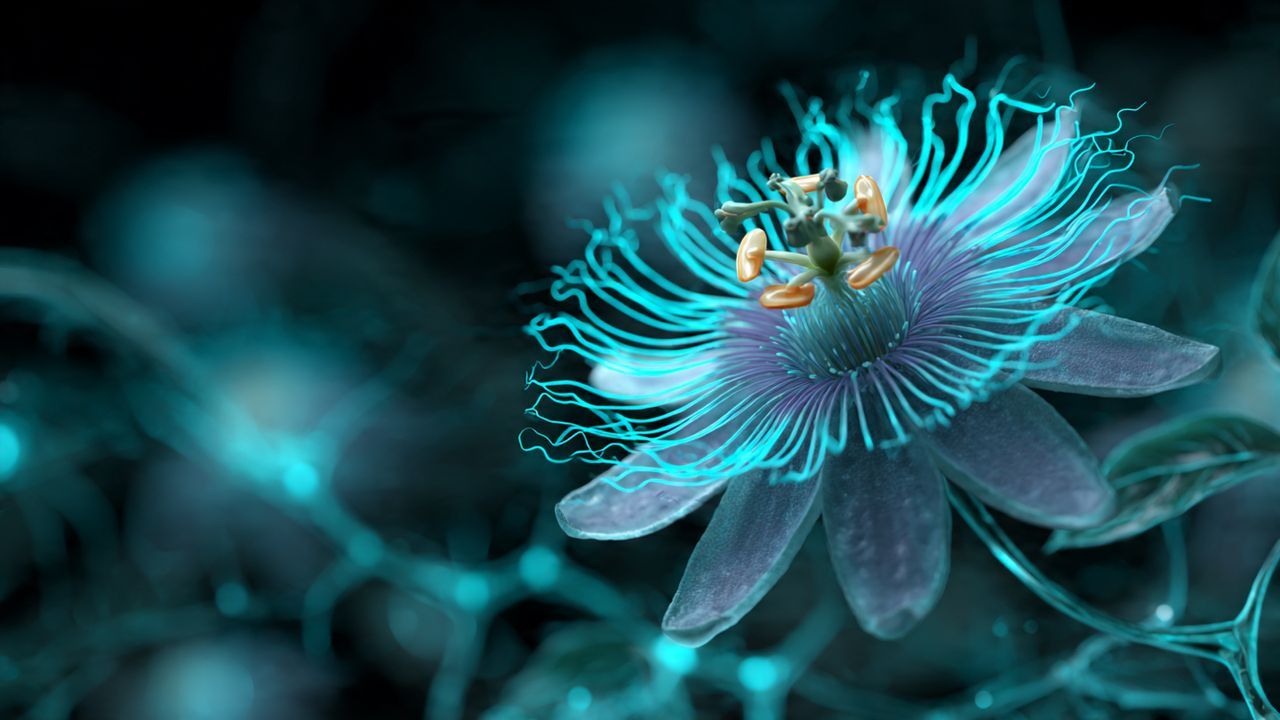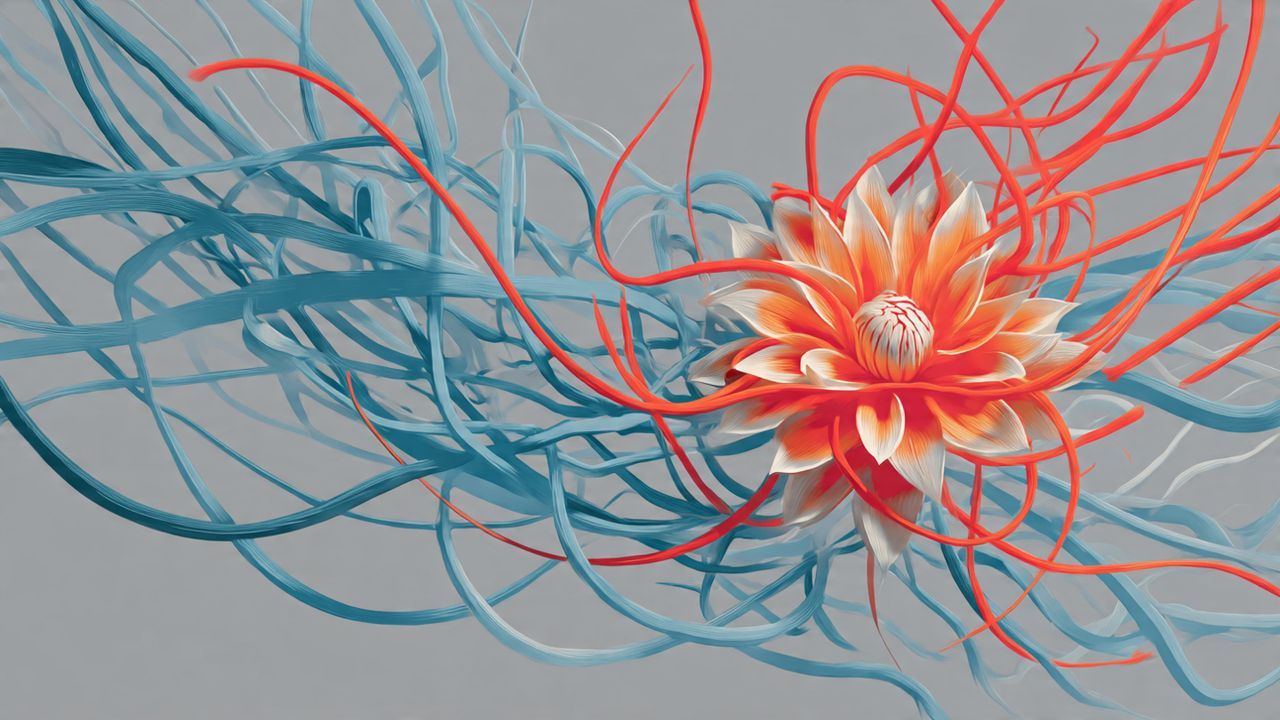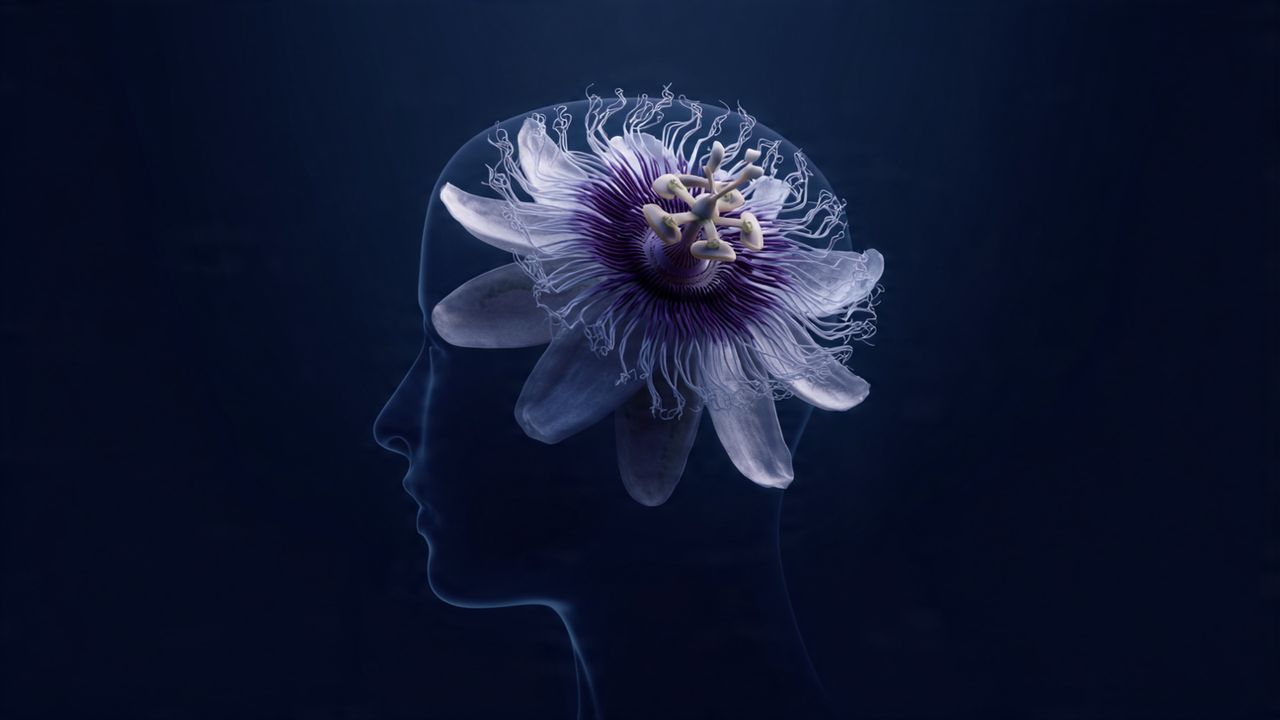
Sign Up and Get 10% Extra Discount
It’s a cruel irony of modern life: you’re exhausted, but you can’t sleep. You lie in bed, your body aching for rest, but your mind is running a marathon. The day’s worries, the next day’s to-do list, and a cascade of random, anxious thoughts create a mental cacophony that makes sleep impossible. This state of being "tired but wired" has become the unwelcome nightly ritual for millions.
In our relentless search for a solution, many of us are looking beyond harsh pharmaceuticals for a gentler, more sustainable path to slumber. We don’t want a sledgehammer that knocks us out, leaving us groggy and disoriented. We want a whisper that quiets the noise, allowing our bodies to do what they do naturally: rest and restore.
This is where the ancient wisdom of herbal medicine meets modern science, and at that intersection, we find a truly remarkable plant: passion flower. Long revered for its calming properties, we now understand the fascinating science behind its ability to soothe a frantic mind. This article explores the deep connection between passion flower, your brain, and the restful sleep you’ve been searching for. We’ll delve into how passion flower helps you sleep by creating a state of profound mental calmness.
Before we explore the solution, it’s essential to understand the problem. Our nervous systems are simply not designed for the 24/7 stimulation of the modern world. Constant notifications, work pressures, and the endless stream of information keep our brains in a perpetual state of high alert.
This triggers the sympathetic nervous system, our "fight-or-flight" response, flooding our bodies with stress hormones like cortisol. The result?
This cycle of stress and poor sleep is a destructive loop. The less you sleep, the more stressed you feel, and the more stressed you feel, the harder it is to sleep. Breaking this cycle requires a tool that can directly address the root cause: an overstimulated brain.
When you first see a passion flower (Passiflora incarnata), its exotic and intricate structure is breathtaking. Its name, however, is often misunderstood. It doesn’t refer to romantic love but was given by 17th-century Spanish missionaries who saw the flower's complex parts as symbols of the "Passion of Christ."
Beyond its stunning appearance and historical name lies a powerful medicinal herb. Native to the Americas, its leaves and flowers have been used for centuries in traditional medicine to soothe anxiety and promote sleep. Today, passion flower extract is celebrated as one of the most effective botanical supplements for restoring calm.
This is a common point of confusion. So, are passion flower and passion fruit the same?
The answer is both yes and no. They come from the same plant family (Passiflora). The delicious, tangy passion fruit you find in juices and desserts comes from a specific species, Passiflora edulis. The medicinal herb used for anxiety and sleep, known for its calming effects, is typically derived from a different species, Passiflora incarnata, also known as maypop. While they are related, they are cultivated for entirely different purposes.
So, how does passion flower help you sleep? The magic lies in its interaction with our brain's chemistry. It doesn't act as a blunt sedative. Instead, it works subtly to rebalance your nervous system, primarily through its relationship with a crucial neurotransmitter.

At the heart of passion flower’s calming action is a neurotransmitter called GABA (gamma-aminobutyric acid). Think of GABA as your brain’s primary "brake pedal."
When your brain is overactive—firing off anxious thoughts and stress signals—it's like a car revving its engine in neutral. GABA steps on the brake, slowing down nerve cell activity and inhibiting those excessive signals. This process leads to feelings of relaxation, reduced nervous tension, and mental calmness.
Low GABA activity is directly linked to anxiety, restlessness, and insomnia. This is where passion flower extract comes in. Research shows that the active compounds in passion flower, particularly flavonoids, help to boost and support the GABA system.
It is believed to work in two key ways:
By supporting the GABA system, passion flower gently "turns down the volume" on brain activity, quieting the racing thoughts and allowing your mind to enter a peaceful state conducive to sleep.
It's nearly impossible to achieve deep sleep when you're anxious. Anxiety and insomnia are two sides of the same coin. This is why how does passion flower help with anxiety is a critical part of its sleep-promoting power.
By boosting GABA, passion flower directly counteracts the physiological symptoms of anxiety. This creates a powerful domino effect:
As anxiety melts away, the door to sleep naturally opens. You’re not being forced into unconsciousness; you're being guided into a state of tranquility where sleep can finally take hold. This makes it an excellent natural alternative to anxiety medication for those dealing with mild to moderate stress.

The passion flower benefits extend beyond just getting you to sleep. It’s about improving the entire sleep experience and enhancing your daytime well-being.
One of the most significant passion flower extract benefits is its impact on sleep quality. Many users report not just falling asleep more easily but staying asleep longer. By reducing nighttime awakenings, it allows you to spend more time in the deeper, restorative stages of sleep. You wake up feeling genuinely refreshed, not just less tired. This makes passion flower extract for sleep and passion flower extract for insomnia a top choice for those seeking restorative rest.
Because it works on the GABA system, passion flower is highly effective for managing generalized anxiety. It can be used during the day in smaller doses to take the edge off stressful situations, prevent feelings of overwhelm, and promote a steady sense of calm without significant sedation.
Perhaps one of the most crucial benefits is what passion flower doesn't do. Unlike many prescription sleep aids, it is a non-habit forming and non-addictive sleep aid. There is a low risk of dependency, and it generally does not cause the severe grogginess or "hangover" effect associated with stronger sedatives, making it arguably the best non-addictive sleep supplement for many individuals.

Understanding the benefits is one thing; knowing how to use them is another. Here’s what you need to know about incorporating passion flower extract uses into your wellness routine.
The correct passion flower extract dosage can vary based on the form you are using and your individual needs.
Important Note: Always start with the lowest effective dose and see how your body responds. It is highly recommended to consult with a healthcare professional before starting any new supplement, especially if you have underlying health conditions or are taking other medications.
So, is passion flower extract safe? For most healthy adults, it is considered very safe when used appropriately. However, there are some potential passion flower extract side effects and contraindications to be aware of.

In our quest for better health, we often forget that true wellness begins with a good night's sleep. It is the foundation upon which our physical energy, mental clarity, and emotional resilience are built.
Passion flower offers a bridge back to that foundation. It doesn’t fight your body; it works with it. By gently hushing the noise of an anxious mind and supporting your brain's own calming mechanisms, it promotes relaxation not as a forceful event, but as a gentle, unfolding process.
If you are tired of the nightly battle against your own mind, exploring the science-backed power of passion flower extract could be your first step toward transforming your nights from a source of stress into a sanctuary for deep, restorative sleep.